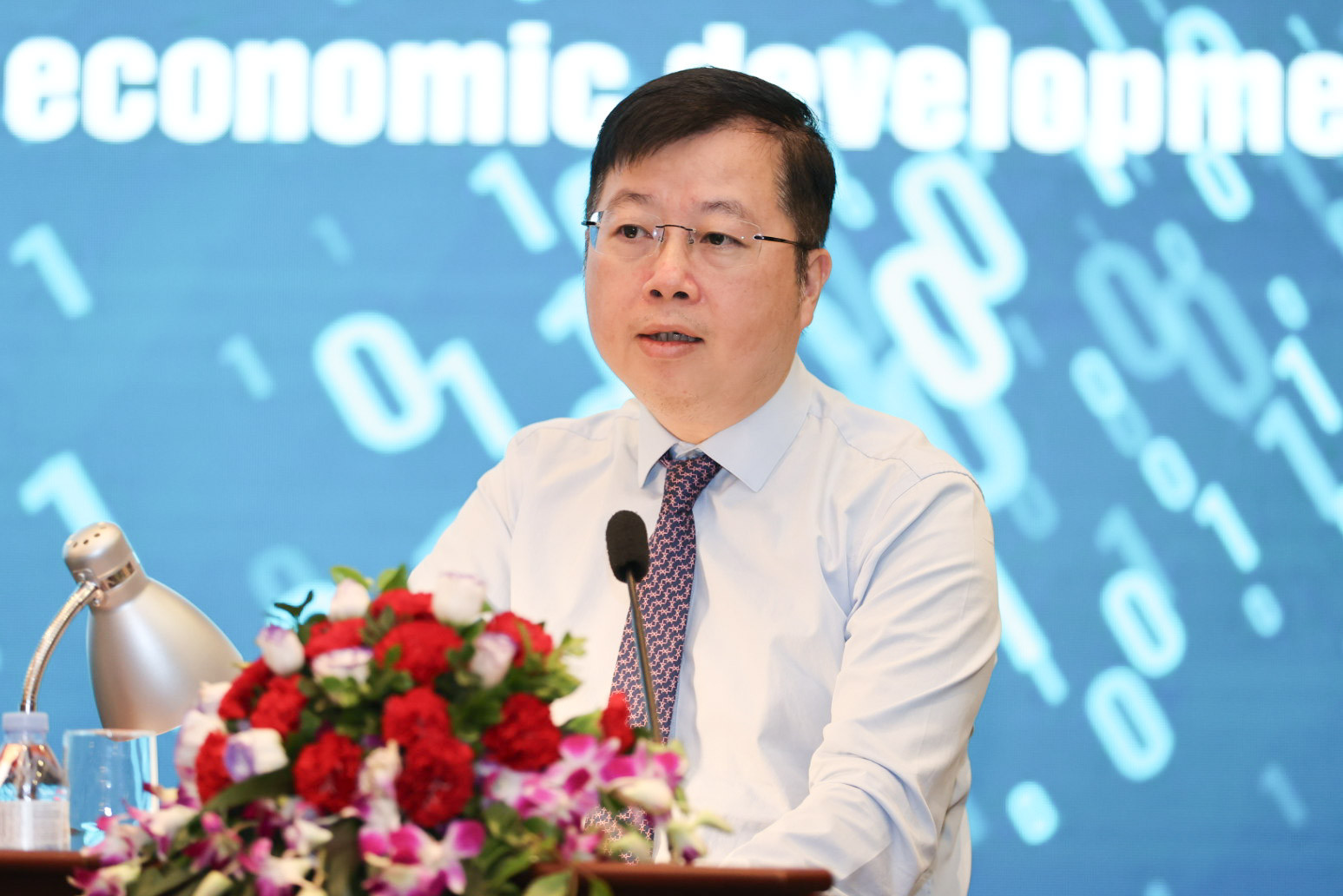
|
Getting your Trinity Audio player ready...
|
Deputy Minister of Information and Communications Nguyen Thanh Lam recently underscored the critical importance of adhering to intellectual property and copyright laws within the realm of journalism.

His remarks came during the International Conference titled “Vietnam’s Press and Media Economy in the Context of Digital Economic Development”, organised jointly by the Ministry of Information and Communications (MIC) and the University of Social Sciences and Humanities.
Addressing an audience of industry leaders, academics, and journalists on June 14, Deputy Minister Lam outlined key initiatives aimed at shaping the future of Vietnam’s press sector. Central to his address was the MIC’s commitment to support and enhance the press industry amidst evolving economic challenges and technological advancements.
A cornerstone of Deputy Minister Lam’s presentation was the proposed amendment to Vietnam’s Press Law of 2016. This revision seeks to modernise legal frameworks to better align with the digital age and evolving business models within the press sector. By introducing new concepts and updating institutional structures, the amendment aims to foster growth and innovation across Vietnam’s media landscape.
Deputy Minister Lam emphasised the pressing need to adapt legislation to align with shifting dynamics in media consumption and economic demands. The revised Press Law will introduce provisions designed to bolster the press economy and streamline operational frameworks, ensuring that media entities can thrive in today’s competitive environment.
Acknowledging the shift towards digital consumption habits among Vietnamese audiences, Deputy Minister Lam stressed the imperative for traditional media outlets to innovate and diversify their service offerings. Press agencies must not only embrace digital platforms but also tailor their content and services to meet the diverse needs of modern consumers.
The Deputy Minister highlighted ongoing efforts to support media adaptation to digital platforms, emphasising the role of innovation in sustaining relevance and engagement. He encouraged press agencies to explore new formats and delivery channels that resonate with today’s tech-savvy audience while maintaining journalistic integrity and ethical standards.
A significant aspect of Deputy Minister Lam’s discourse was the economic sustainability of journalism in Vietnam. He discussed recent measures aimed at restructuring advertising revenue streams to redirect funds away from platforms that violate intellectual property and copyright standards. These initiatives aim to bolster legitimate media outlets by ensuring fair competition and protecting their economic interests.
Furthermore, Deputy Minister Lam addressed institutional reforms related to Decree 18/2014, which governs royalties in the press and publishing sectors. The revision of this decree seeks alignment with Vietnam’s broader intellectual property framework, providing clear guidelines for copyright payments within journalism. This initiative aims to curb copyright infringement and safeguard the financial resources of press agencies across the country.
In advocating for innovation within the journalism sector, Deputy Minister Lam emphasised the inherent challenges of transforming business models amidst rapid technological advancements. He called upon press agencies to explore novel approaches to revenue generation and operational efficiency, promising continued support from the MIC in navigating these transitions.
Vietnam must embrace change in how journalism is practised and monetised, Deputy Minister Lam asserted, underscoring the MIC’s commitment to assisting press agencies in adopting sustainable and innovative economic models that ensure long-term viability in a digital-first era.
Deputy Minister Nguyen Thanh Lam’s address at the International Conference marked a pivotal moment in Vietnam’s journey towards enhancing its press sector. With a focus on legislative reforms, digital adaptation, economic sustainability, and innovation, the MIC aims to position Vietnamese journalism on a robust footing amidst global technological shifts.
By advocating for intellectual property rights and compliance with copyright laws, Vietnam seeks to foster a thriving media ecosystem that upholds journalistic integrity while meeting the evolving needs of its citizens in the digital age.
















